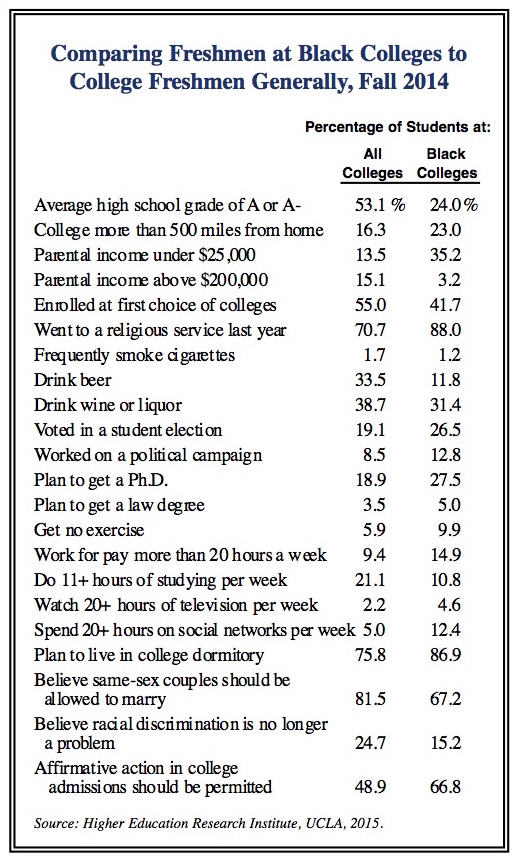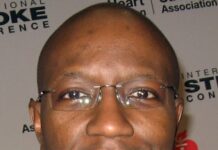 Each year the characteristics and attitudes of first-year college students are surveyed by the Cooperative Institutional Research Program at the Higher Education Research Institute at the University of California at Los Angeles. This nationwide survey compares current first-year students in terms of characteristics such as family income, grades in high school, and future goals. In addition, the survey contains statistics on a wide variety of personal traits such as study habits, political views, and social activities.
Each year the characteristics and attitudes of first-year college students are surveyed by the Cooperative Institutional Research Program at the Higher Education Research Institute at the University of California at Los Angeles. This nationwide survey compares current first-year students in terms of characteristics such as family income, grades in high school, and future goals. In addition, the survey contains statistics on a wide variety of personal traits such as study habits, political views, and social activities.
 Unfortunately, the race-related data in the UCLA survey is limited to students at historically Black colleges and universities and includes no information on differences between Black and White students at predominantly White colleges and universities.
Unfortunately, the race-related data in the UCLA survey is limited to students at historically Black colleges and universities and includes no information on differences between Black and White students at predominantly White colleges and universities.
More than half of entering college students report that they had A or A- averages in high school. For entering students at HBCUs, 24 percent said they had A or A- averages in high school.
This year’s data shows that students at Black colleges are less likely than college students generally to smoke cigarettes or drink alcohol. Entering students at Black colleges spend far more time on social networking websites and watching television than first-year college students generally.
The data shows that students at Black colleges are more likely than college students generally to travel 500 miles or more from home to attend school. Students at HBCUs are more likely to go to church and are less likely than college students generally to support same-sex marriages.
One must remember that many historically Black colleges and universities are affiliated with conservative religious organizations. Given this fact, it is no surprise that African-American students at these colleges are more likely to hold more conservative views and positions than is the case for African-American college students generally. On many issues, students at Black colleges tend to be more conservative than college students generally.
The complete report, The American Freshman: National Norms, 2014, may be downloaded by clicking here.











UCLA!You have the chutzpah to be affiliated with research concerning Black American college students. Particularly since you have an atrocious record as it pertains to expanding the admissions ranks of Black American students (not including student athletes either) at your school. I would suggest that you examine your own implicitly bias school in how it disparately treat Black American students.
It’s utterly amazing that Los Angeles and the state of California is portrayed as being a bastion of liberalism and multiculturalism, and all the while, it’s as equally or more racist than many of the southern states.
Michael: Does any of the above surprise you? California is just as Southern as Mississippi.
The United States of America was established as a white society, founded upon the genocide of the First American indigenous tribes and the enslavement of gifted powerful Africans.
Do I need to say more?